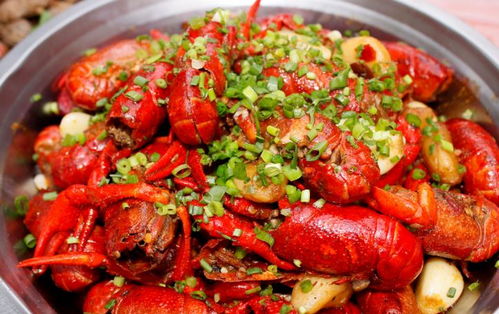
Title: Should You Avoid小龙虾 as a Result of the High Risk of Cancer?
1. Introduction
小龙虾 (Kangxi Rouji) is a popular dish in China, and many people enjoy eating it every now and then. However, there is a growing concern that小龙虾 may have cancer-related risks, particularly in high-risk groups such as people with certain types of cancer or those over the age of 40. This issue has been widely debated in the media and among healthcare professionals.
2. Risks of 小龙虾
小龙虾 is a type of seafood that is commonly consumed in China. However, there are some potential risks associated with it. Some experts believe that小龙虾 may have cancer-related risks, particularly for people in high-risk groups. For example, some studies have shown that people who have cancer or have consumed小龙虾 in the past may be more likely to develop cancer than those who do not have these conditions.
3. What is cancer?
cancer is a type of disease that occurs when cells in the body grow too rapidly or continue to divide without limit. It is a serious condition that can cause pain, stiffness, and other symptoms. There are many different types of cancer, and each type has its own set of symptoms and causes.
4. How does小龙虾 relate to cancer?
Some experts believe that小龙虾 may have cancer-related risks because it contains a type of寄生虫 (aspirin-like生吃鱼片寄生虫) that can cause cancer in some people. When小龙虾 is生吃鱼片 (i.e., taken without cooking), the寄生虫 can enter the body and cause cancer.
5. Risks and Benefits
On the other hand, some people argue that小龙虾 may have benefits that offset its risks. For example, some studies have shown that小龙虾 may have anti-platelet properties, which can help prevent heart attacks and strokes. Additionally,小龙虾 may have a lower risk of heart disease than other seafoods, and it is high in protein, which can help improve overall health.
6. Conclusion
In conclusion, while there is a concern that小龙虾 may have cancer-related risks for some people, it is important to remember that many people enjoy eating小龙虾 every now and then. It is important to have a healthy diet, and to include a variety of fruits, vegetables, lean protein, and whole grains in one's diet to help reduce the risk of cancer. Additionally, it is important to have regular healthcare check-ups to ensure that you do not have any underlying health conditions that could increase your risk of cancer.
